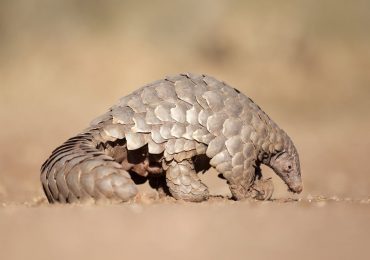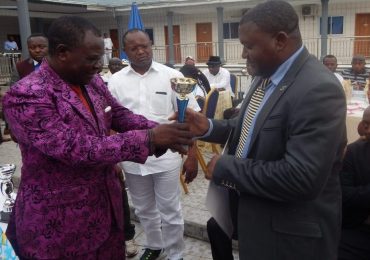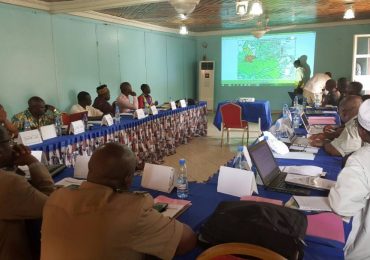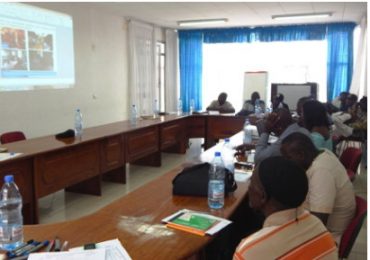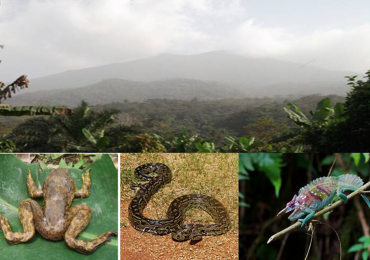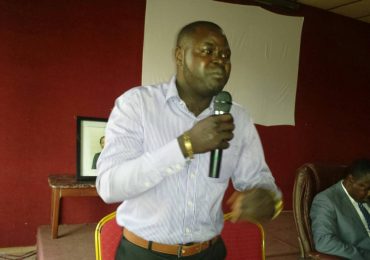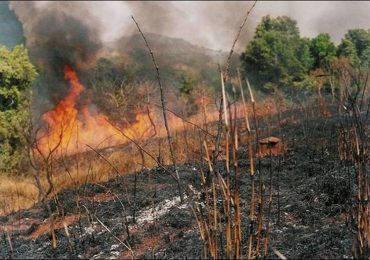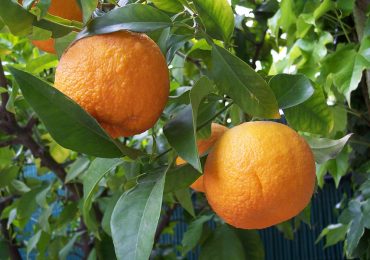The problems and challenges that climate change poses are not just the concern of a few groups of persons, scientists or associations. Everyone should get involved in stemming climate change and its impact on the environment, says Shey Benjamin Serkfem in this exclusive interview with The Green Vision’s Immaculate Mkong. The environment and development educationist and Chief Executive of PEOPLE EARTHWISE, sheds a little light on the REDD+ concept, one line of attack against climate change and how much Cameroon is involved in its execution and promotion.
The Green Vision: What is REDD+, National Platform and CC all about?
Shey Benjamin Serkfem: REDD+ stands for Reduction of Emissions from Deforestation and Climate Change, and introduction of sustainable development actions. After the 1992 Earth Summit in Rio de Janeiro, Brazil, countries that have signed the UN Framework Convention on Climate Change (UNFCCC) meet annually at a Conference of Parties (COP) to the Convention and advanced negotiations on climate change issues and national contributions in adaptation or mitigation of climate change impacts. The denomination of the mechanism evolved from RED when focus was only on deforestation through REDD with the addition of degradation to the addition of the plus (+), representing sustainable development considerations especially for tropical countries staking their forests and environments.
For REDD+ to succeed it must be voluntary, inclusive and responsive to the needs of all parties. This is why tools like Free Prior Informed Consent (FPIC) are built into the mechanism. There are heritage issues at the social and environmental levels requiring safeguards. It is, therefore, a conditionality in the mechanism that civil society is represented, listened to, considered and participates meaningfully. The National Platform ensures the civil society roles of stakeholder watch-dog and actor, liaising with Government and International Development Partners (IDPs) with relays, feedbacks, enhancing sensitization, education and capacity-building and assisting communities participate with rights guaranteed rather sacrificed.
What is NP, REDD+ and CC all about?
The National Platform for REDD+ & CC is the designated civil society representative in the Climate Change response initiative of Cameroon under the REDD+ global mechanism, in response to climate change. Countries of the global tropical belt in Africa, South America and Asia voluntarily enter the REDD+ programme, through which they benefit from a basket fund contributed to by the developed economies of the ‘North’, responsible for the huge emissions that are bringing about climate change.
With the REDD+ programme, economic value shall be calculated from standing volumes of trees and forests, as standing volumes of trees absorb and store carbon, which otherwise would be in the atmosphere and lead to atmospheric temperature rises that cause climate change. Despite the good intentions and declarations by national and international parties, civil society must be watchful and active as interests vary with stakeholders, and good institutional policies and intentions are often corrupted by post-bearers acting according to their whims, caprices and fears and not in the spirit of the regulation or policy
Do Cameroonians understand what REDD+ is all about? If no,
why and what should be done get them involved?
Some Cameroonians understand what REDD+ is all about, beginning with government. Cameroon is amongst the few countries whose REDD+ documentation and ground work has been accomplished by competent professionals at the level of the Ministry of Environment and Protection of Nature (MINEPDED), the Ministry of Forestry and Wildlife (MINFOF), the National Platform of Civil Society Networks, and the contributions of local chiefs, indigenous people’s representatives, gender advocates and many Cameroonians who have had the opportunity to participate in the various stages of the ongoing process. We must also recognize the support we are getting from IDPs like the World Bank, IUCN, GIZ, WWF, AFD, etc. Still, many Cameroonians are yet to have the opportunity to be educated or participate in the REDD+ process. Remember climate change involves everyone. We are a long way off from attaining that level of participation, but within the context, means and opportunities in hand, the Cameroonians who have participated are making sure that REDD+ succeeds in Cameroon; that it contributes to our development agenda and protects the rights and heritage of our people.
To broaden the participation in response to climate change and REDD+, everyone in governance leadership in every sector should take the issues on board and stop thinking that it is the business of just MINEPDED charged with the role of coordination and technical quality control. Adequate financing appropriately channeled and transparently managed should strengthen both government and civil society action. The leadership of every community at the grassroots should find out more about climate change and the REDD+ mechanism. The platform has established a Civil Society Secretariat amongst its 10 Regional Coordination across Cameroon. This is a place to go to for information, but before people can make good use of that the Secretariats should be supported with the resources, manpower and financing they require. The Southwest Secretariat is at PEOPLE EARTHWISE Buea, but the coordination includes the Bakossi Indigenous People Association led by HRM Chief Enone and the women’s representative, Mrs. Walimbe Matilda of REFACOF
What is the role of the Civil Society in the REDD+ Process and is it playing this role?
Civil Society Organisations (CSOs) play the role of stakeholder watchdog, raising and fighting for issues of justice, fairness and equity, judging quality and representation, relaying information and providing feedback, enhancing sensitization, education, training and generally capacity building at the grassroots. CSOs are playing their required role though limited by means and trends. The rhythm and context are Cameroonian, so Cameroonian CSOs can only be as good and effective as the Cameroonian context allows. As a quick example, which structure is there in Cameroon that can be equated to DFID for the British, SNV for the Netherlands, AFD and AFC for the French, USAID for the Americans and similar structures that support CSO action for western countries? The Cameroonian CSO sector is still to be given its rightful recognition as a development actor, catalyst, and contributor to the improvement of the GDP and valorization of the country’s education system.
What is COP 21-2015 all about and do you think Cameroon is ready for it?
COP 21 is the 21st Conference of Parties to the UNFCCC and shall hold in Paris, France, in December 2015. Since the establishment of the Convention at the Rio Erath Summit in 1992, and its coming into force in March 1994, 195 countries have adhered to the Convention including our beloved Cameroon. Since then, adherents meet each year to discuss, debate and set standards for conformity towards adaption or mitigating climate change. The negotiations bear on each country’s economy, industry and the lifestyles of its people, so they can be very difficult and oppositional. Milestones in the negotiations include the Kyoto Protocol in 2005, the Bali (Indonesia) Action Plan in 2007 with wits long term vision, the Copenhagen agreement on limiting global warming to 2oC, Cancun, Mexico, in 2010 with the creation of dedicated institutions for key points including adaptation, the Durban Platform (ADP) after South Africa hosting and the hope to establish a Universal Climate Agreement in COP 21 Paris 2015 took a firm hold at the 2013 Warsaw Conference.
Cameroon is ready and MINEPDED has already declared the position the government is taking to Paris. It is on seven points namely; the commitments of Green House gases countries (developed countries), financing, technology transfer, response to disasters, adaptation, the REDD+ mechanism, the Clean Development Mechanism and stakeholder roles. The National Platform of CSOs has just concluded its second workshop in Buea after Garoua to define their position. Following the cue, a Southwest CSO, FORUDEF, with WWF sponsorship is working with the Southwest Civil Society Secretariat on preparatory and broad-based workshops for Southwest CSOs to take their own position on the COP 21 Negotiations.
What has PEOPLE EARTHWISE been doing as far as REDD+ and climate
change are concerned?
PEOPLE EARTHWISE (PEW) as an Education Civil Society Organization (ECSO) focusing on environmental protection and sustainable development has been doing three things: building our capacity on REDD+ and climate change; facilitating or providing training to other CSOs, NRM target groups, and local councils; advocacy and representation of the SW Atlantic Coast of Cameroon and the Western Highlands in REDD+ & CC matters and civil society forums. On the ground and since the establishment of PEW in 2002, we have been promoting tree planting, wise energy consumption, environmental education and other project activities all aimed at achieving our institutional goal of educating people to work with nature, celebrate people and environments. PEW networks with other partners like Transparency International Cameroon, WWF, FORUDEF, Pro-Climate International and other IDPs and local NGOs.



